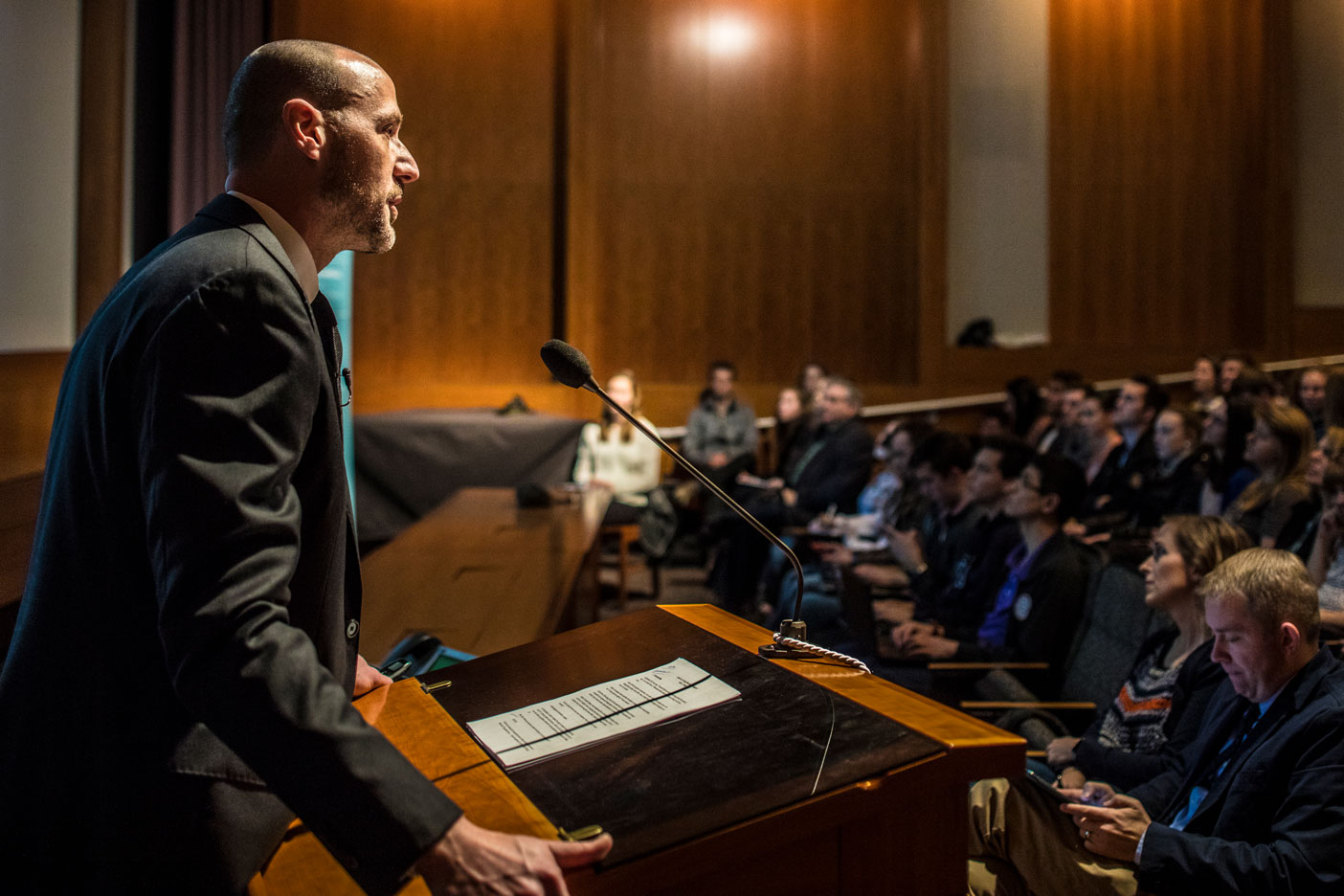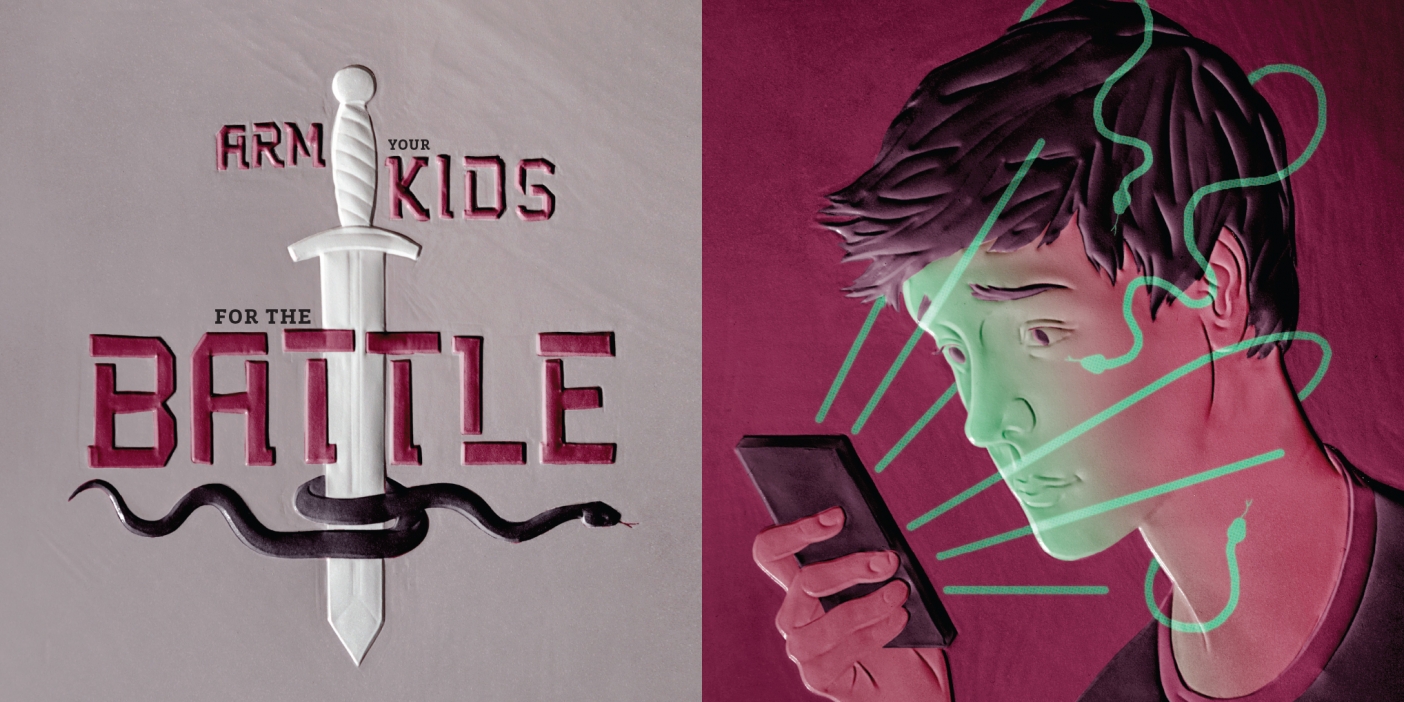Sexual Assault, #MeToo, and the Gospel of Jesus Christ
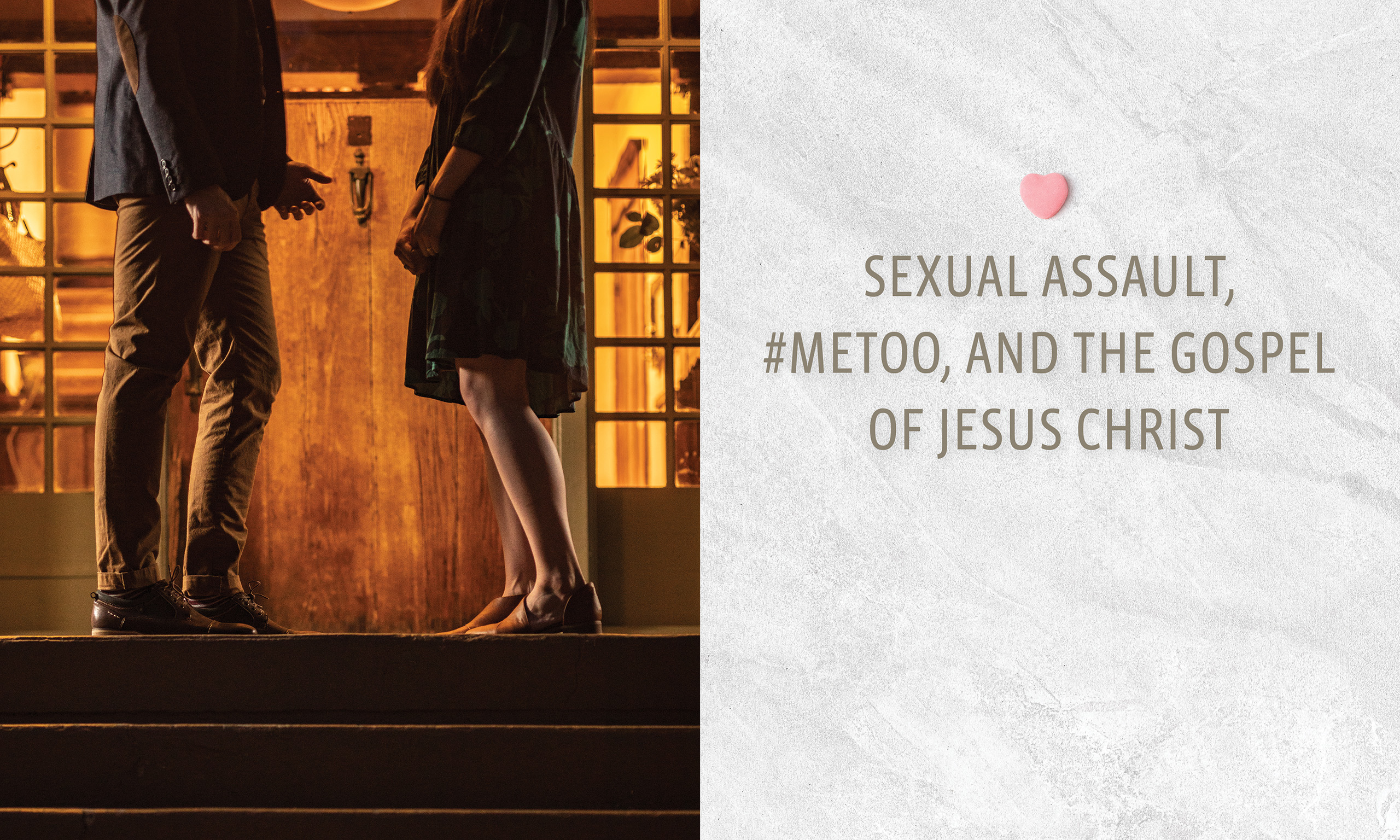
How understanding agency, accountability, and the Atonement helps build a culture of consent and respect.
By Benjamin M. Ogles (BS ’85, PhD ’90) in the Summer 2018 Issue
Photography by Bradley H. Slade (BFA ’94)
In 2017 there were many stories published regarding sexual harassment and assault. Celebrities, politicians, and corporate executives were among those accused of being perpetrators. The #MeToo campaign erupted on social media, Time magazine selected “the silence breakers” as the Person of the Year, and the Chronicle of Higher Education, a newspaper for university faculty and administrators, recently started tracking sexual misconduct stories as they came to light at universities across the nation. I watched these stories and others with particular interest, given two university responsibilities I have had over the last two years that focused on the issue of sexual assault.
First, President Kevin J Worthen (BA ’79, JD ’82) asked me to serve on an advisory council focused on examining the university’s response to incidents of sexual misconduct. Our charge was to determine how to better handle the reporting process for victims. To gather information, we set up a website where more than 3,100 people submitted feedback. Though it took many hours, we read every response, some of which described personal, heartbreaking experiences. Our work resulted in 23 recommendations, all of which have been or are being implemented at BYU, including developing an amnesty policy, changing organizational structure, creating a victim-advocate position, and conducting a survey of BYU students regarding sexual assault.¹ The second committee I served on surveyed all full-time students during the winter 2017 semester. Again we learned of some BYU students’ painful and distressing experiences with sexual assault.
These committees were not my first encounter with the issue of sexual assault. As a stake president I prayerfully strive to be a source of comfort and healing for victims. As a psychologist I sometimes counsel those who suffer the consequences of abuse or assault. Even with this background, my service on these committees made me even more keenly aware of the suffering that is associated with sexual assault. And it was discouraging to learn of individuals who perpetrate or experience unwanted sexual contact, despite our high standards for conduct here at BYU.
Sexual assault is a difficult, highly charged, and sometimes political topic not easily discussed in any setting. I felt anxious and at times overwhelmed as I prepared this devotional address on the gospel doctrines associated with sexual assault. Yet my experiences led me to this moment, in which I felt an urgency to address this delicate topic.

Doctrinal Foundations
I want to address some doctrinal foundations before applying them to the specific issue of sexual assault.
Agency
During the Council in Heaven, we were given the opportunity to sustain Heavenly Father’s plan. Our very presence here today confirms our premortal decision to trust in the Savior and His Atonement rather than join the father of all lies in his rebellious attempt “to destroy the agency of man” (Moses 4:3). The Lord later reaffirmed human agency when He told Adam and Eve that they could choose to partake of the tree of knowledge of good and evil, for it was given unto them.
So now we find ourselves here in mortality having been given physical bodies and the opportunity to progress and demonstrate that we have the faith to “do all things whatsoever the Lord” commands (Abr. 3:25; see also v. 24). According to the Church’s “Agency and Accountability” Gospel Topics page:
The ability and privilege God gives us to choose and to act for ourselves [continue to be] essential in the plan of salvation. Without agency, we would not be able to learn or progress or follow the Savior. With it, we are “free to choose liberty and eternal life, through the great Mediator of all men, or to choose captivity and death, according to the captivity and power of the devil” (2 Ne. 2:27).
With agency, we have the opportunity to become like God; however, progression is possible only in a context that is rich with a variety of real choices, including between good and evil (see Abr. 3:26; 2 Ne. 2:11–13). Life on earth is brimming with experiences that will help us progress: it brings with it a physical body, valuable mortal struggles, and the opportunity to live and learn by faith.
Accountability and Atonement
Implicit with this freedom to choose is the reality that we all make mistakes. Sometimes we do not have all of the information we need to make a good decision. Other times we make mistakes, transgress, or sin, which can bring painful consequences for ourselves and others. Agency is inextricably bound to accountability: for every decision and action, we remain answerable to God. Without Jesus Christ’s role in the plan of salvation, this accountability would mean a dead end for us in our pro-gression. Because of the power of the Savior’s atoning sacrifice, we can find peace, cleansing from sin, and ultimately eternal life in God’s presence.
Not all adversity in life is the result of our mistakes, transgressions, or sins. Frailty, weakness, disappointment, and suffering are inherent to the mortal experience. Some difficulties, such as sicknesses, accidents, natural disasters, and eventually death, occur because we live in a fallen world, and they give us opportunities to develop patience, humility, and compassion. The Atonement of Jesus Christ provides help for this type of heartache as well (see Alma 7:11–12; D&C 62:1).
“The Savior’s atoning sacrifice can heal us from the hurt and abuse of others.”
Some of the most complicated problems in life are the direct result of injuries caused when our fellow human beings unrighteously exercise their agency to hurt, control, coerce, or use others. Unfortunately, people around us—even those closest to us, such as our family, dating partners, and friends—sometimes use their agency to act in ways that injure us. While our Heavenly Father recognizes and cares about the evil and pain we experience in this world at the hands of others, He will not remove their agency, because doing so would violate the boundaries that promote our progression. In his general conference talk “To Heal the Shattering Consequences of Abuse,” Elder RichardG. Scott teaches, “To preserve moral agency, the Lord does not restrain individuals from improper use of that agency. . . . He understood that some of His spirit children would use that agency improperly, causing serious problems to others.” But, Elder Scott noted, God did not leave us to suffer at the hands of others without providing “a way of overcoming the tragic consequences of such damaging use of agency.”² The Savior’s atoning sacrifice can heal us from the hurt and abuse of others. Even knowing this, it is upsetting and sometimes agonizing to experience the evil, ignorant, or naïve acts of some people that harm us or our loved ones.
Creative Powers
The last doctrinal foundation I want to highlight is connected to sexual intimacy. Elder David A. Bednar (BA ’76) taught:
Our Heavenly Father and His Beloved Son are creators and have entrusted each of us with a portion of Their creative power. Specific guidelines for the proper use of the ability to create life are vital elements in the Father’s plan. How we feel about and use that supernal power will determine in large measure our happiness in mortality and our destiny in eternity.³
When used inappropriately through dehumanizing objectification of others, for selfish gratification, or as a tool to subjugate and manipulate, sexual contact becomes an act of aggression that lacks respect for agency, affection, and God’s standards. On the other hand, sexual intimacy can be a healthy, positive experience when it is mutually expressed under the right circumstances, within healthy contexts, and with the full consent of both individuals.
How does this doctrinal background apply to the issue of sexual assault? I will discuss this relative to perpetrators, victims, and others.
Perpetrators
Within this doctrinal context, it is easy to see why committing sexual assault is such a grievous sin. Perpetrators exert power over other individuals, disregard their agency by depriving them of their right to control their own physical body, and treat them as an object to satisfy their selfish desires. Individuals who force or coerce sexual contact engage in one of the most personal and invasive forms of aggression.
The definition of a sexual offense in Utah criminal code includes sexual acts committed when “the victim expresses lack of consent through words or conduct.”⁴ If the other person does not willingly and freely agree to touching, kissing, or other sexual behavior, consent has not been given. Consent cannot be given when the person is asleep, unconscious, intoxicated, or does not have the intellectual capacity to agree, including when the person is a minor. Similarly, a person who stops resisting in response to pressure, manipulation, or coercion has not given consent.
Acquaintance
Some may think I am describing situations that occur only when strangers suddenly assault unknowing victims. The data from the BYU campus climate survey,⁵ similar to national data, illustrate a very different reality. Of the 12,602 students who completed the survey, 475 reported 730 separate incidents of unwanted sexual contact. Only 6 percent were perpetrated by a stranger. Much more often the perpetrator was a boyfriend, girlfriend, spouse, or other acquaintance. These findings suggest that some men—and I use men because the data clearly indicate that men are far more likely to be the perpetrator than women—either misunderstand the nature of consent in a relationship, misinterpret their partner’s wishes, or understand their partner’s wishes and directly ignore them as they force their own will upon their partner.
Consent
I believe some instances of unwanted sexual contact at BYU occur because one person assumes the other is interested and “goes for it” without ever checking to see if that perception of the other person’s wishes is accurate. The person then may stop when explicitly asked, but only after having kissed or touched without permission. Although this situation is different from one in which a perpetrator deliberately ignores the other’s wishes and forces sexual contact, it is still without consent and is prone to result in significant negative consequences for the other person.
Accordingly, I wish that all people knew how to ask first. Instead of guessing or assuming, we can rely on direct information. For example, one possibility is to ask first, and if consent is given, then you kiss. It might go something like this: “I like you. I really enjoy being with you and getting to know you. Would it be alright if I kissed you?” Then you wait to hear the response before acting.
“I wish all people knew how to ask first. Instead of second guessing or assuming, we can rely on direct information.”
This is very different from the movie scene in which the good-looking and charming hero grabs the leading lady in spite of her physical resistance and kisses her forcefully. Typically, this fictional scene then portrays her melting in the heat of the moment and eventually returning the affection. You are bombarded with these types of unrealistic scenarios in many formats. Learn to discern between reality and fantasy. These are fake scenarios that romanticize assault. In real life the most respectful approach is to honor the personal space and physical autonomy of others and kiss or touch only when you are sure you have consent. Remember, sexual contact without consent is assault.
People are often skeptical of the idea of seeking consent. They worry that asking for permission might “ruin the moment” or feel awkward. It would be convenient if consent for every attempt at physical expression of affection was intuitively known by both parties. The problem is that not every kiss is wanted. But wouldn’t it ruin the moment if a person does not read nonverbal signals well or simply believes that the other person is interested when in reality the other is not? The pain of being physically violated is much worse than a brief, potentially awkward moment when someone expresses a desire to be more physically intimate. Besides, I believe it is possible to find creative, fun, and romantic ways to ask for permission that may even improve the moment.
Covenant Marriage and Consent
As Latter-day Saints, we understand that a sexual relationship is sacred and sanctioned by God only within marriage, where spouses freely give themselves to one another emotionally and physically. When transformed by a sealing covenant within holy temples, this marital union becomes eternally sanctified.
When we understand that physical intimacy is a profound expression of love, trust, and creative powers within covenant marriage, then the issue of consent becomes even more vital. Marriage itself is not consent to intimacy. Spouses ave the same obligation to respect one another’s agency and physical and personal space, just as in any other relationship. What joy could possibly accompany a sexual relationship in which only one spouse is freely and willingly engaged? Or, spoken more positively, what an incredible opportunity for affection and joy when covenant-making husband and wife willingly and mutually consent to use God-given creative powers as a way to express their love and devotion to one another.
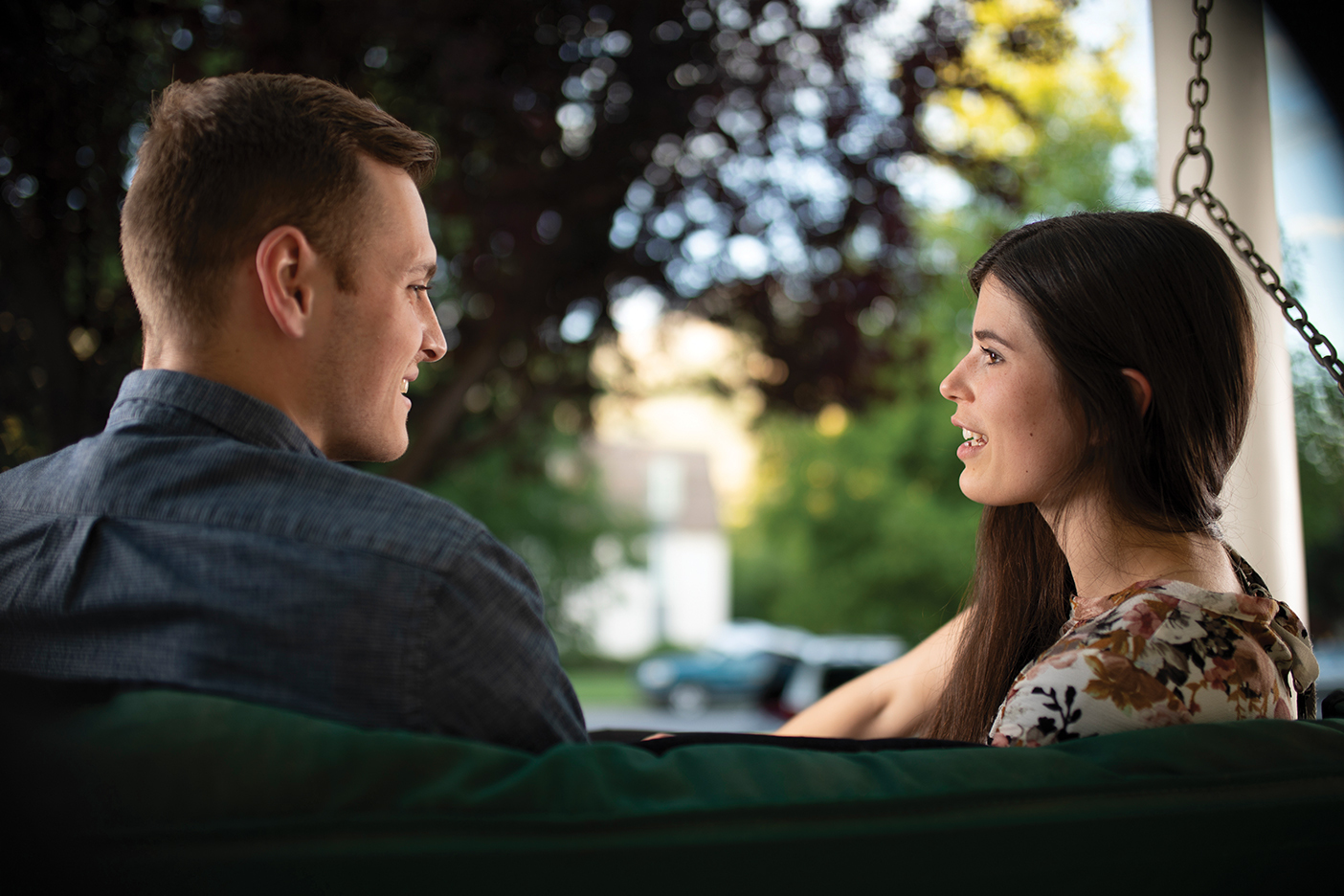
Agency and Personal Space
Through my service on the Advisory Council and Campus Climate Survey Committee, I have also gained insights about consent and agency in everyday nonsexual, interpersonal interactions. For example, I realized that I sometimes roughhoused with my grandchildren in a way that disregarded their right to choose how to manage their personal space. While playing together, I sometimes chased and grabbed my grandchildren and then tickled them while ignoring their protests.
In the middle of the summer of 2016, while reading first-person accounts of sexual assault, I realized that tickling my grandchildren in this way was potentially problematic. Although it was innocent and all in good fun, perhaps it was not okay for me to tickle them in spite of their objections. I wondered, “What am I teaching them about agency, their voice, and their personal space? Will these early learning experiences influence their perceptions about what is and is not okay in future relationships?” My study of sexual assault changed my ideas and behavior concerning personal space and respect for another’s agency.
Accountability and Repentance
Those who violate another’s agency through force or coercion or by ignoring or navely guessing about the other’s wishes regarding sexual contact will stand accountable for their actions. President GordonB. Hinckley said:
And then there is the terrible, vicious practice of sexual abuse. It is beyond understanding. It is an affront to the decency that ought to exist in every man and woman. It is a violation of that which is sacred and divine. It is destructive in the lives of children. It is reprehensible and worthy of the most severe condemnation.⁶
Those who have committed this sin should see their bishop, repent, cooperate with legal authorities when necessary, and seek professional help. Though the perpetrator may face civil and Church discipline, Elder Scott promised that “full repentance will bring the sweet relief of forgiveness, peace of conscience, and a renewed life.”⁷
Victims
On the other side of the incidents of unwanted sexual contact are the victims. Of the BYU students we surveyed, 6.5 percent of female students and 1.2 percent of male students were victims of sexual assault at BYU in the 12 months prior to the survey. In addition, 1,692 students (21 percent of surveyed women and 6 percent of surveyed men) experienced sexual assault or abuse as a child or adolescent prior to coming to BYU. To those who have had traumatic experiences, please know there are people—many people—who are concerned for your welfare and many people who have experienced personally what you have experienced. You are not alone. We know that you were unjustly harmed and that you may continue to have negative thoughts and feelings. We know that your view of your own safety and the predictability of the world and people in the world has likely changed. You may feel frightened, damaged, unworthy, ashamed, or helpless at times. Some of you are already on the road to recovery and are beginning to understand that you were not responsible when someone violated your agency and that you are not damaged or worth less because of the incident. You are children of God, and He stands ready to assist you. You are certainly deserving of the title “survivor.” Your healing can occur either with or without professional help, depending on your circumstances. Yet we know the road you now travel is often filled with suffering and doubt, and we are ready to help.
Self-Blame
Through my professional interactions and church interviews with victims of sexual abuse and assault, I know that sometimes victims try to figure out why these bad things happened to them. Some wonder if they did something wrong to deserve this circumstance. Some question their own behavior and wonder if they did something to encourage the other person to ignore their wishes—as if they somehow invited this behavior. Especially if they made other decisions around the time of the incident that they now see as questionable, they may think they are somehow partially responsible for what happened to them. But you are not responsible for that to which you did not consent! That is the essence of agency.
Let me illustrate with a personal experience. In 1990 our family moved to a very small community in southeast Ohio called The Plains. On the first night, someone broke into our car and took what they wanted. When I discovered the theft, several thoughts came immediately to mind:
“If I had only parked closer to the house and away from the street.”
“It’s my own fault; I should have locked the car doors.”
“How naïve of me to think we were safe just because this is a small, rural town.”
“If I had been more alert, I could have prevented this from happening.”
Do you see how I took responsibility for a crime committed by someone else? No matter where I had parked, how naïve I had been, or whether I had locked the doors or not, no one has the right to take things from my car without my permission. I was not responsible for the theft. Yet I automatically took the blame because of things that I thought I should have done differently in retrospect.
“Real peace and healing are available from Him who suffered ‘pains and afflictions and temptations of every kind’ (Alma 7:11).”
This is a common response to victimization. Similarly, in the much more serious and harmful case of sexual assault, when one’s agency and ability to determine what happens to their own body are disregarded, victims may automatically respond to the situation with feelings of guilt or shame because they can imagine ways in which they think they could have or should have avoided the situation. After an assault, victims may attempt to reestablish a sense of control and order by taking some of the blame for what happened.
Victim Blaming
Victims are not the only ones to erroneously think they may be responsible for what happened to them. Sometimes friends and relatives may think the victim did something to contribute to the situation. Perhaps you heard my story and thought I was partly responsible for losing my possessions because I left the car doors unlocked. Let me be very clear about the responsibility for sexual assault. Perpetrators are responsible for their actions. Victims were deprived of their agency, and they are not accountable for what happened to them without their consent—no matter what they were wearing, where they were, or what happened beforehand. They did not invite, allow, sanction, or encourage the assault. As the “Abuse” Gospel Topics page on LDS.org states:
Victims of abuse [or assault] should be assured that they are not to blame for the harmful behavior of others. They do not need to feel guilt. If they have been a victim of rape or other sexual abuse, whether they have been abused by an acquaintance, a stranger, or even a family member, victims of sexual abuse are not guilty of sexual sin.
Healing
Gratefully, Elder Scott notes, “Our [Heavenly] Father provided a way to heal the consequences of acts that, through force, misuse of authority, or fear of another, temporarily take away the agency of the abused.”He continues:
That secure healing comes through the power of the Atonement of His Beloved Son, Jesus Christ, to rectify that which is unjust. Faith in Jesus Christ and in His power to heal provides the abused with the means to overcome the terrible consequences of another’s unrighteous acts.⁸
This healing can be supplemented with a variety of resources. Elder Scott encourages survivors to seek help from their bishops, to use professional help, and to recognize Satan’s attempts to discourage and deceive them into believing that there is no hope for their future. There is hope! There is healing! I recommend reading Elder Scott’s talk and other resources on LDS.org for those suffering at the hands of another. Real peace and healing are available from Him who suffered
pains and afflictions and temptaions of every kind; . . .
[who took] upon him their infirmities, that his bowels [might] be filled with mercy . . . , that he [might know] . . . how to succor his people according to their infirmities. [Alma 7:11–12; emphasis added]
Friends, Relatives, Bystanders
Many of you have been neither perpetrators nor victims of sexual assault. You want to help but may not know exactly what to do. Whether you are aware of it or not, there is someone around you whose life has been altered by sexual violence. Being “an example of the believers” (1 Tim. 4:12), living a life of kindness and compassion, keeping your covenant “to mourn with those that mourn” (Mosiah 18:9), and serving others can all have powerful effects on those around you. Please do not underestimate the influence of diligent obedience, daily worship, and active service. Allow the Spirit to work through you to bless the lives of others.
If a friend or relative tells you he or she has been the victim of sexual assault or sexual abuse—and our data suggest victims are most likely to tell a friend or a roommate—say you believe the person, express your concern, and encourage the person to seek professional help. For victims who are BYU students, there are several resources available. If they wish, they can see the university’s victim advocate and receive confidential advice about the various options for proceeding. They may choose to seek a medical evaluation. In our community, most all hospital emergency departments and the BYU Health Center provide free exams for recent victims of assault. The BYU Title IX Office can provide resources and support to help them be successful in school. Confidential counseling is also available to BYU students at BYU Counseling and Psychological Services. You might even offer to accompany your friend to one of these offices to offer support.
You can also be respectful and kind to your neighbors, friends, family, and dating companions. You can provide safety and refuge for those who are victimized. You can help by recognizing that the words and actions you choose influence those around you, including some who are survivors. You can stand up to others when you hear inappropriate remarks. You can also be alert for signs of inappropriate behavior in relationships and take actions to provide assistance when needed. Only by uniting our voices and actions to assist victims and to promote respect for others can we help to end sexual violence.
In our conversations about sexual assault, we too often overlook the fact that many people are respectful, kind, and considerate of others in their daily and intimate relationships. If you are among this group, I congratulate you on your respect for the agency of others. As we treat one another as children of God, we base our relationships on the love, respect for agency, and kindness necessary to form a stable foundation for eternal relationships.
Conclusion
It is my prayer that the doctrines and principles of the gospel might shed light on this difficult topic in such a way as to bring hope rather than discouragement. If you are confused, uncertain, or disheartened, please seek out support and places to talk through your concerns. Our moral agency is a divine gift that makes it possible for us to progress through mortality by facing opposition, choosing the light, and returning to our Father in Heaven. If you have been harmed because of others’ misuse of their agency, there are resources available to you, and thankfully the way has been prepared through the Atonement of Jesus Christ for you to be healed from the injuries, injustices, and offenses of others. “O how great the goodness of our God! . . . O how great the plan of our God!” (2 Ne. 9:10, 13) The way may be difficult, yet we will eventually triumph over every adversity.
Finally, when we respect others’ agency, especially in healthy relationships that can lead to, and thereafter enrich, covenant marriage, we have the potential to jointly, mutually, and consensually engage in an intimate and eternal marriage that can bring us a fulness of joy with our families in the presence of our Eternal Father.
NOTES
- See Brigham Young University, “Report of the Advisory Council on Campus Response to Sexual Assault,” Oct. 7, 2016, news.byu.edu/sites/default/files/AdvisoryCouncilReport.pdf.
- Richard G. Scott, “To Heal the Shattering Consequences of Abuse,” Ensign, May 2008.
- David A. Bednar, “We Believe in Being Chaste,” May 2013.
- See le.utah.gov/xcode/Title76/Chapter5/76-5-S406.html.
- See Brigham Young University, “Report on the Campus Climate Survey on Sexual Assault,” November 2017, news.byu.edu/sites/default/files/Campus%20Climate%20Report_F2017.pdf.
- Gordon B. Hinckley, “Save the Children,” Ensign, November 1994.
- Scott.
- Scott.
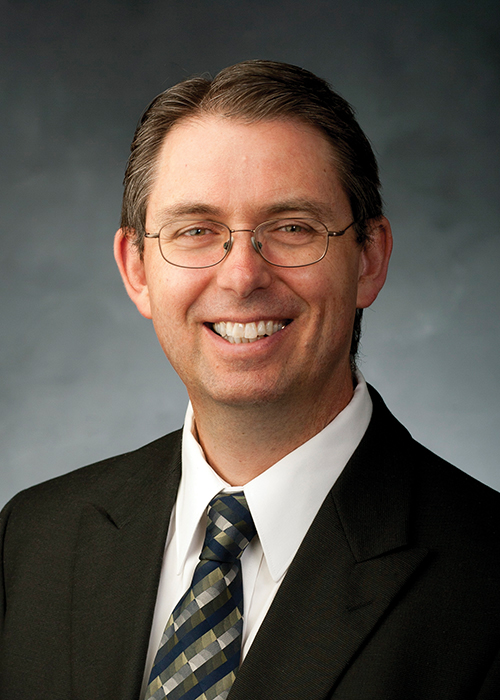
This article is adapted from a devotional address given Jan. 30, 2018, by Benjamin M. Ogles, dean of the BYU College of Family, Home, and Social Sciences. The full text with extended footnotes and links is available at speeches.byu.edu.
Feedback: Send comments on this article to magazine@byu.edu.


